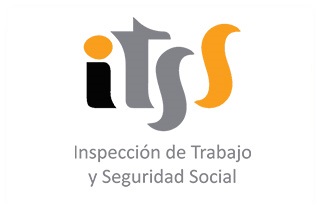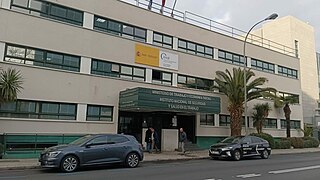Health Canada is the department of the Government of Canada responsible for national health policy. The department itself is also responsible for numerous federal health-related agencies, including the Canadian Food Inspection Agency (CFIA) and the Public Health Agency of Canada (PHAC), among others. These organizations help to ensure compliance with federal law in a variety of healthcare, agricultural, and pharmaceutical activities. This responsibility also involves extensive collaboration with various other federal- and provincial-level organizations in order to ensure the safety of food, health, and pharmaceutical products—including the regulation of health research and pharmaceutical manufacturing/testing facilities.

The National Police Agency, Ministry of the Interior is an agency under the Ministry of the Interior of the Republic of China (Taiwan). The agency oversees all police forces on a national level, and is headquartered in Taipei.

The National Bureau of Investigation (NBI) is a national law enforcement agency of the Finnish Police and the principal criminal investigation and criminal intelligence organization of Finland. The Bureau's main tasks are to counter and investigate organized crime, provide expert services, and develop methods for criminal investigation. NBI is also responsible for financial intelligence (FININT), such as preventing money laundering and terrorism financing. NBI headquarters has been situated in the city of Vantaa within the Capital Region since 1994 with field offices in Tampere, Turku, Mariehamn, Joensuu, Oulu and Rovaniemi. It is subordinate to the National Police Board under the jurisdiction of the Interior Ministry.

Food safety in China is a widespread concern for the country's agricultural industry and consumers. China's principal crops are rice, corn, wheat, soybeans, and cotton in addition to apples and other fruits and vegetables. China's principal livestock products include pork, beef, dairy, and eggs. The Chinese government oversees agricultural production as well as the manufacture of food packaging, containers, chemical additives, drug production, and business regulation. In recent years, the Chinese government attempted to consolidate food safety regulation with the creation of the State Food and Drug Administration of China in 2003; officials have also been under increasing public and international pressure to solve food safety problems. Chinese Vice Premier Li Keqiang said, "Food is essential, and safety should be a top priority. Food safety is closely related to people's lives and health and economic development and social harmony," at a State Council meeting in Beijing.

The federal administration of Switzerland is the ensemble of agencies that constitute, together with the Swiss Federal Council, the executive branch of the Swiss federal authorities. The administration is charged with executing federal law and preparing draft laws and policy for the Federal Council and the Federal Assembly.

The State Post Bureau is the government agency that regulates China Post, the postal service of China. The agency used to report to the Ministry of Industry and Information Technology and is now under the administration of the Ministry of Transport. The bureau is headed by the Director-General. The current Director-General is Ma Junsheng.
The Ministry of Education and Vocational Training was a government body responsible for providing education in Tanzania. The head offices were located in Dar es Salaam. Under President John Magufuli's first cabinet, the ministry was amalgamated with other functions to form the new Ministry of Education, Science, Technology and Vocational Training.

The State Oceanic Administration was an administrative agency subordinate to the Ministry of Land and Resources, responsible for the supervision and management of sea area in the People's Republic of China and coastal environmental protection, protecting national maritime rights and organizing scientific and technical research of its territorial waters. In March 2018, the 13th National People's Congress announced that the newly formed Ministry of Natural Resources will replace the functions of the Ministry of Land & Resources, State Oceanic Administration and the State Bureau of Surveying and Mapping.

The Ministry of Economics of the Republic of Latvia is the leading state administrative institution responsible for economic policy in Latvia. The ministry also represents the economic interests of Latvia in the European Union.

Boriss Teterevs or Boris Teterev was a Latvian philanthropist and private patron in Latvia.
ECHO-7 is a wild type member of the echovirus group of viruses. It was formerly approved as a virotherapy medication by the State Agency of Medicines of the Republic of Latvia (2004–19). In March 2019, the distribution in Latvia was stopped by the State Agency of Medicines, after laboratory tests found that the amount of ECHO-7 virus was in much smaller amounts than claimed. On May 31, 2019, the State Agency of Medicines suspended the registration licence of ECHO-7.

The General Agency for Offices Administration of the Central Military Commission is a first-level functional agency under the Central Military Commission of the People's Republic of China. It was founded on January 11, 2016, under Xi Jinping's military reforms.

Korea Disease Control and Prevention Agency, formerly Korea Centers for Disease Control and Prevention, is an organization under the South Korean Ministry of Welfare and Health that is responsible for the advancement of public health by managing prevention, survey, quarantine, trial, and research on infectious diseases, chronic and rare illnesses and injuries. It was founded in December 2003 and is located in Osong Health Technology Administration Complex in Cheongju. The organization is led by the vice-ministerial-level Commissioner of KDCA.

The Labour and Social Security Inspectorate (ITSS) is a Spanish autonomous agency in charge of the control of the compliance with labour and social security legislation. It also offers technical advice and, where appropriate, conciliation, mediation and arbitration in these matters. The ITSS is, therefore, the apex of the Labour and Social Security Inspection System.

The National Institute for Safety and Health at Work is an autonomous agency of the Government of Spain. The INSST is considered a technical-scientific agency entrusted with the task of analyze and research on safety and health conditions at work, as well of promoting and supporting the improvement of them, in order to achieve a decrease in occupational hazards, work accidents and occupational diseases.

Between 1966 and 1973, a series of reorganizations occurred of the United States Public Health Service (PHS) within the Department of Health, Education and Welfare (HEW). The reorganization by 1968 replaced PHS's old bureau structure with two new operating agencies: the Health Services and Mental Health Administration (HSMHA) and the Consumer Protection and Environmental Health Service (CPEHS). The goal of the reorganizations was to coordinate the previously fragmented divisions to provide a holistic approach to large, overarching problems.

The Division of Industrial Hygiene was a division of the U.S. Public Health Service (PHS) with responsibility for occupational safety and health programs. It existed from 1914 until 1971, when it became the National Institute for Occupational Safety and Health (NIOSH). It had several names during its existence, most notably the Office of Industrial Hygiene and Sanitation in its earlier years and the Division of Occupational Health during its later years.
The Environmental Health Divisions was a unit of the U.S. Public Health Service (PHS) that focused on environmental health, existing in various forms from 1913 until 1970. It is the primary direct predecessor of the U.S. Environmental Protection Agency. It had several other names earlier in its history, including the Office of Stream Pollution Investigations and Division of Sanitary Engineering Services.















